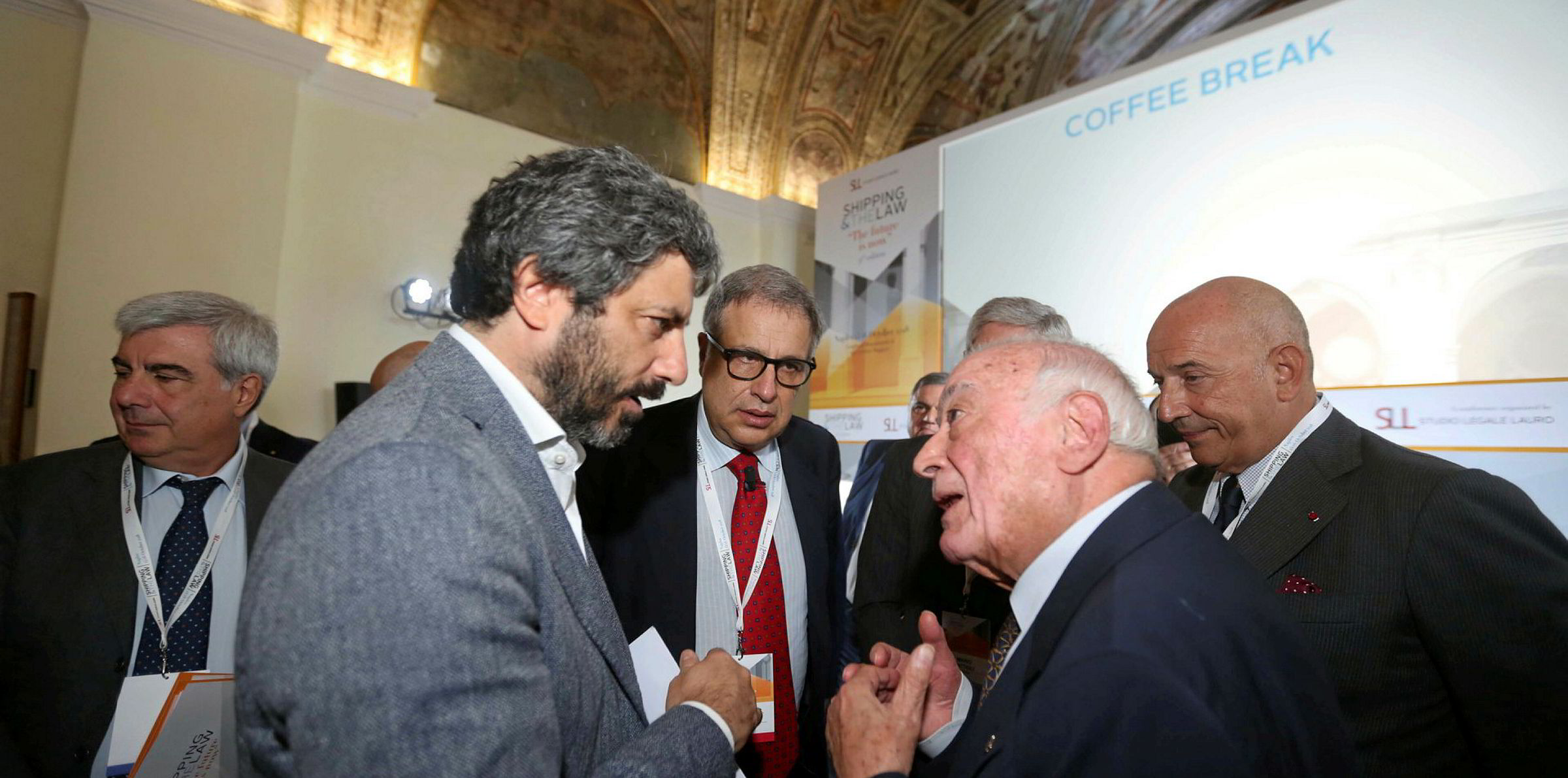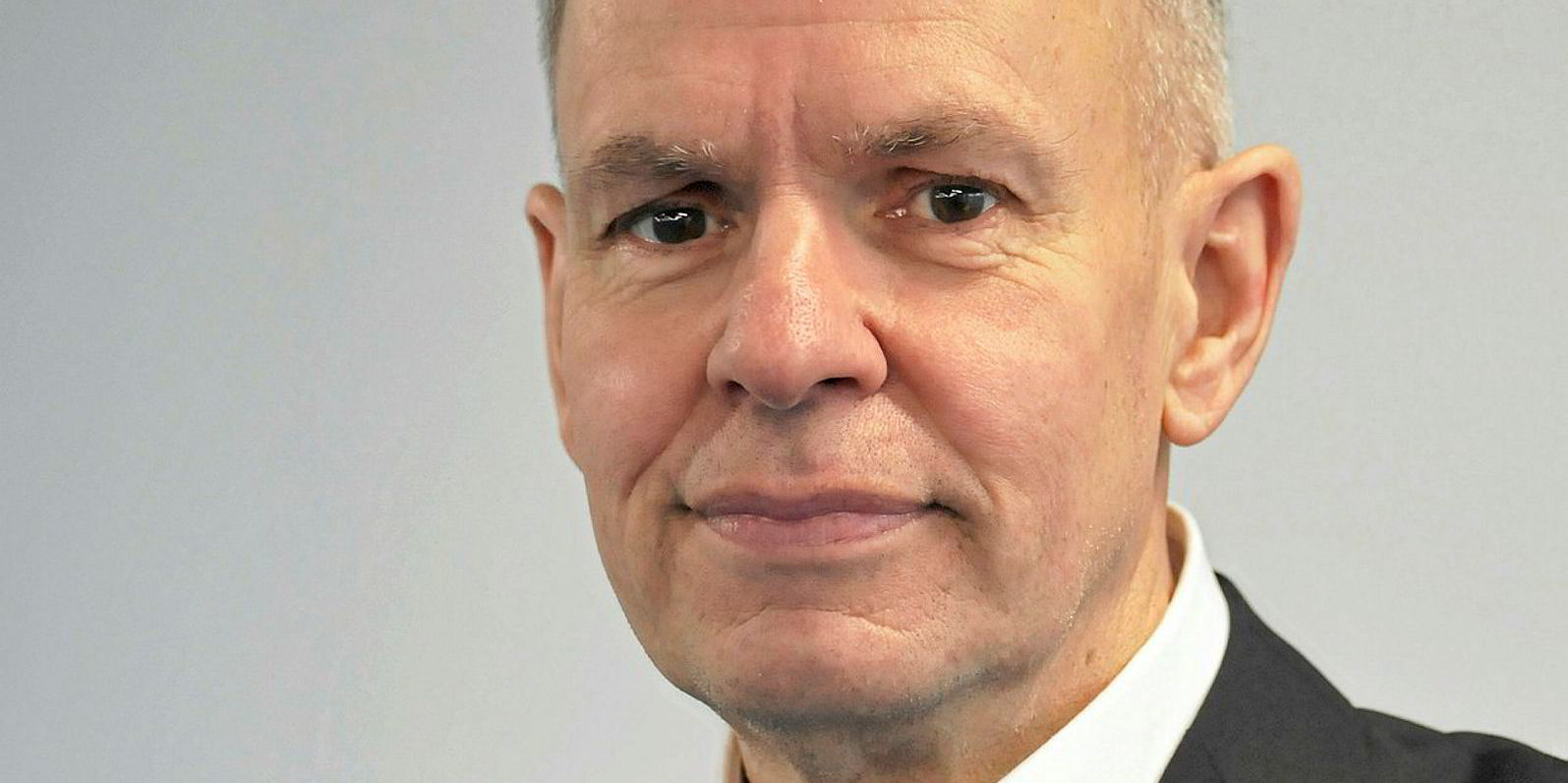There is something counter-intuitive about using a 13th century church in the centre of Naples for maritime discussions under the title of “the future is now”.
Italy — in fact the whole of Europe — is sometimes accused of being stuck in the past, anchored by, and to, its extraordinary history.
And yet here we are in the beautiful Basilica di San Lorenzo Maggiore debating how to navigate the new world of changing geopolitics, ports of refuge and green fuels.

It is not strange really. If you dig down into the foundations of this vibrant port city you soon find Greeks, Spanish, and other nationalities have lived here. And you can have a giant volcano such as Vesuvius blowing its top and burying a whole town like nearby Pompeii, but that did not frighten off the locals.
Change is a way of life, although some things remain the same: the overt Neapolitan disdain for authority, worship of words and pizzas (which have apparently been around since the Neolithic age).
And to start the proceedings at this year’s Shipping & the Law conference is a man in an open-neck shirt, tweed jacket and a pair of jeans: one of the new populists who have taken over government in Rome.
Casual dress, serious intentions
Roberto Fico, president of the Italian Chamber of Deputies, might dress casually, but he and his Five Star Movement are serious. He arrived on time for a start.
And although he sees himself as on the left of his anti-establishment party, he is as much part of the new political world — alongside the likes of Donald Trump, Brexiteers and others who shipowners must learn to live with.
Fico’s message was upbeat. He is a true believer in the “key blue economy" as he called the wider maritime sector which he argues accounts for 10% of Italy’s GDP.
Fico sees it as central to the future of Italy for economic benefit, but also for jobs whether in shipbuilding, shipowning, or myriad support systems.
The 44-year-old politician reeled off statistics showing the blue economy was creating more companies and more businesses led by young people and women.
He saw synergy between caring for the environment and care for the commercial side of shipping while promising better local transport infrastructure and avoiding the policymakers' mistakes of the past, although he did not spell out what those were.
It all sounded terrific, but was this vision going to convince Italy's maritime veterans?
Letting rip at the government
Well, not one of them. The 92-year-old Peppino d’Amato, head of bulker and product tanker owner Perseveranza, climbed onto the podium grabbed the microphone and let rip at the government for “not really paying attention” to shipping.
Unlike the positive picture painted by Fico, the reality was that Italian owners were in trouble, closing down and laying off staff, said d’Amato who was literally shaking with passion. He demanded a meeting with ministers. Fico promised to sort something out pronto.
Mario Mattioli, the current head of Confitarma, the Italian shipowners' association, was more upbeat. He said he had held a positive 50-minute meeting with the new transport minister, most impressively without mobile-phone interruptions.
And in recent days, the vice president for infrastructure and transport, Edoardo Rixi, had indicated there could be tax breaks for owners trying to introduce cleaner fuel technology.
Shipping 'not appreciated'
Other major figures such as Panos Laskaridis, the president of the European Community Shipowners' Associations, and John Lyras, the former boss of the Union of Greek Shipowners, were also willing to be take geopolitical uncertainty in their stride. Laskaridis' main gripe was that European Union policymakers did not seem to realise and appreciate one really big asset it had: shipping.
This was clearly a covert way of telling the European Commission not to get ahead of the rest of the world on decarbonisation for fear it would make the region's owners uncompetitive.
There were inevitable concerns expressed about whether fuel providers would be ready for the IMO’s new sulphur regulations in 2020 and how hard it was to pick the right fuel technology to meet 50% decarbonisation by 2050.
But at this gathering you felt shipowners accept change is inevitable. Francesco Lauro, the flamboyant local attorney, former local port boss, and mastermind behind these shipping and law events, had it right: the future is now.



